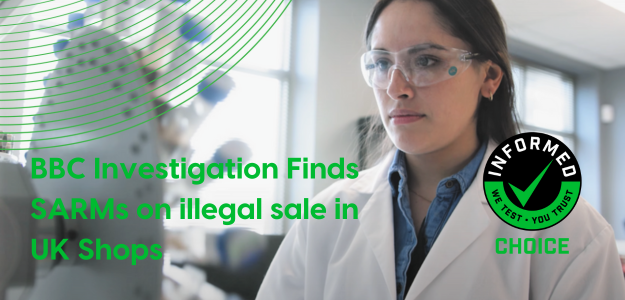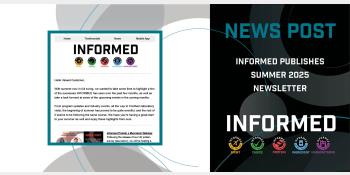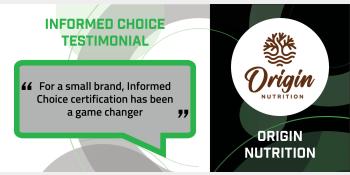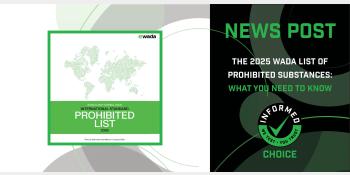Informed Choice News
BBC Investigation finds SARMs on illegal sale in UK shops

The BBC, the UK’s Public Service Broadcaster, has published the outcome of investigative work looking into the prevalence of SARMS[1] (Selective Androgen Receptor Modulators) marketed as supplements on sale illegally in UK shops and online. Their investigation mirrors similar research that our Scientific team in LGC carried out in 2021 on supplements available to UK consumers purporting to contain SARMs to evaluate the accuracy of product claims and content labelling[2].
Our scientists found discrepancies ranging from the presence of no active ingredients to those containing undeclared prohibited analytes. Where SARMs were present, discrepancies were found between the amounts and those listed on the packaging. Of 20 supplements marketed as containing SARMs, 18 were labelled with a daily dosing and serving size. Four products were labelled as ‘not safe for human consumption’, however alarmingly two of these products were labelled with a suggested dose. Only six supplements were labelled accurately, however the remaining samples all had issues of missing analytes, different or additional SARMs than labelled, and in one case, no SARMs were found at all.
The full effects of taking SARMS are not yet known, but some doctors warn they could have worse side effects than steroids. They are being investigated by pharmaceutical companies, however they are yet to complete safety or efficacy testing and so they are not clinically approved. The UK Food Regulator, the Food Standards Agency, has warned that these products should not be consumed, and that placing them on the market in the UK is a criminal offence.
These investigations highlight the risks that consumers face given that these products that are widely available in shops as well as online. The inaccurate product claims give rise to uncertainty over both the dose taken and the identity of any of these unapproved drugs. Even for supplements for which the product labelling is correct, the lack of complete toxicity data, especially for combinations of SARMs taken as stacks, means that the safety of these supplements is unknown.
The Informed quality assurance programmes have been developed to ensure that sports nutritional supplements are safer and do not contain harmful or prohibited substances. This is confirmed through 3rd party testing of raw materials and finished products, in addition to a review of manufacturing processes and facilities. Find out how they can provide your customers with the confidence they are looking for.










